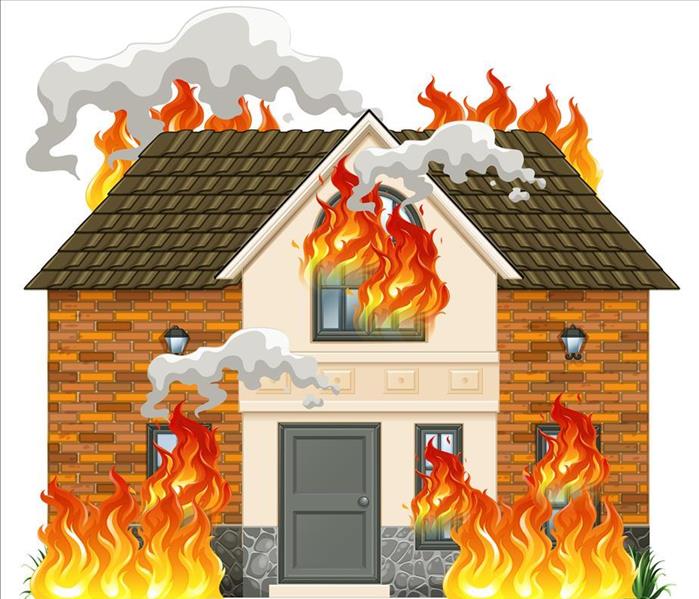Principles of Effective Cleaning for Fire Damage in Your Wilmington Home
3/2/2020 (Permalink)
SERVPRO’s Guide to Fire Damage Restoration in Wilmington Homes
The biggest issue following a fire is not charred items around your home, but the lingering and difficult-to-remove offensive smoke odor. Even the smallest of kitchen fires can produce smoke that penetrates the smallest cavities throughout your home.
Fire damage in your Wilmington home most certainly means smoke damage to accompany it. Cleaning and restoring items within your home are far less costly than replacing or resurfacing, making it the most practical approach in most cases. There are principles for effective cleaning that SERVPRO restoration specialists use in instances of fire and smoke damage.
Locate and Identify Smoke Residues
The projector manager or lead technician inspects your home to locate the smoke residues. They begin near the source of the fire and figure out the route and distance the smoke took throughout the structure. From there, the restorer identifies the different types of smoke residues so they can choose the most appropriate cleaning method to remove every kind of residue.
Capture and Remove Smoke Residues
Restorers use air and cleaning fluids to release the smoke residues and then carry them away. Vacuuming works for dry particles loosely attached to surfaces. If dry, it is crucial to vacuum rather than use wet cleaners since fluid can smear the dry particles into the surface, making them much harder to remove. Dissolving works for residues not loosely attached by loosening the bond with the surface so that the soils suspend in the cleaning solution enabling it to flush away when rinsed. Dissolving includes; washing with a cleaning agent to agitate and penetrate, rinsing to remove suspended soils, and drying through the use of air movers and ventilation.
Dispose of Smoke Residues
Only dispose of cleaning solvents and wastes into state and locally approved disposal sites. This means not to dispose of them in sewers, storm drains, or septic systems. Wastewater without cleaning solvents, depending on your locality, may be disposed of in treated sewer lines. Your SERVPRO restoration specialists know the regulations pertaining to your residential zone to avoid health risks and hefty fines for improper disposal.
For 27/7 assistance with fire, flood, or water damage in your home, contact SERVPRO of Brandywine / Wilmington (General Contractor #1992104829) at (302) 762-8080.
See more about Wilmington.






 24/7 Emergency Service
24/7 Emergency Service
